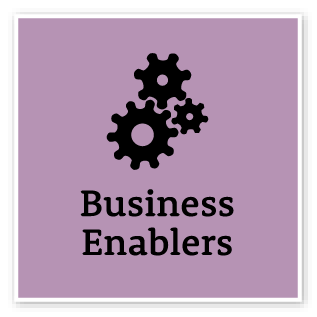Create Role Description
The generated role description is an online preview of the completed role description.
Role Description
| Cluster | Health |
| Agency | Justice Health Forensic Mental Health Network |
| Division/Branch/Unit | Community Forensic Mental Health |
| Role Number | 225765 |
| Classification/Grade/Band | Administration Officer Level 4 |
| Senior executive work level standards | Not Applicable |
| ANZSCO Code | 1111111 |
| PCAT Code | TBC |
| Date of Approval | 27 October 2024 |
| Agency Website | https://www.nsw.gov.au/health-and-wellbeing/justicehealth |
Agency overview
We provide health care to adults and young people involved in forensic mental health and criminal justice systems. We serve patients with complex health needs in community, inpatient, and custodial settings.
We have the opportunity to improve the lives of those who need it most and have limited contact with mainstream health services in the community.
The Community Transitions Team is an arm of the Statewide Community Forensic Mental Health Service. The team will be community based but provides assertive prison in-reach services to support patients' transitions. The aim is to develop mental health care plans, establish necessary therapeutic supports for patients, and provide follow-up community care to patients leaving custody. The team will, in turn, promote positive health outcomes and community participation.
Our primary mission is to connect people with complex mental health needs and offending histories to high quality, comprehensive care to reduce reoffending, readmission to hospital and promote and enhance community safety.
Primary purpose of the role
The Administration Officer Level 3 position maintains the day to day functioning of the NSW CFMHS office at Olympic Park and acts as an initial point of contact for the NSW CFMHS, including calls from Local Health Districts, patients and a range of external stakeholders. The position calls for the provision of a wide range of clerical, administrative, keyboard and data entry skills. This includes organising and tending to administrative and clerical activities, such as formatting medicolegal reports, management of clinical file information and CFMHS databases. The position provides administrative support to the CTT.
Key accountabilities
• Act as a first point of contact for the service, tactfully screening calls and taking necessary action for the Clinical Director, Service Director, and other Community Forensic Mental Health Service staff. This includes, responding to enquiries, providing relevant information as required, taking and recording messages and/or transferring calls to relevant staff.
• Assisting the Manager CTT with a number of tasks using the approved systems including: staff payment using Health Roster; processing travel and conference bookings for the CFMHS staff; update purchasing for the CFMHS cost centre; assist with data collection via PAS/CHIME
• Corporate and clinical filing and document management according to JH&FMHN policy
• Provide clerical support to committees, preparing and distributing agenda and minutes and accompanying papers.
• Update the weekly intake-referral database and the clinician caseload database for the CFMHS and CTT operational meetings
• Manage all incoming mail and direct to the appropriate person if a specific individual is required. Compile correspondence for the Service Director and Clinical Director’s signature
• Perform any other duties as directed by the Manager, Community Transitions Team.
• Willingness to work with other arms of the NSW CFMHS, such as the Forensic Consultation and Assessment Team, or the Treatment and Rehabilitation Clinic, on request from Service Director or Clinical Director NSW CFMHS.
Key challenges
• Providing timely assistance to the service for the completion of urgent tasks.
Key relationships
| Who | Why |
|---|---|
| Internal | |
| Manager CTT/Service Director/Clinical Director |
|
| Administration staff |
|
| CFMHS and CTT Clinicians |
|
Role dimensions
Decision making
2. Ability to act as the first point of contact, maintain a professional and helpful approach, transfer telephone calls, take messages and diplomatically manage distressed callers.
3. Demonstrated ability to manage sensitive content, maintain confidentiality, maintain accountability and professionalism
4. Demonstrated ability to prioritise a demanding workload while maintaining attention to detail
Reporting line
Direct reports
Budget/Expenditure
Key knowledge and experience
Essential requirements
Capabilities for the role
The NSW public sector capability framework describes the capabilities (knowledge, skills and abilities) needed to perform a role. There are four main groups of capabilities: personal attributes, relationships, results and business enablers, with a fifth people management group of capabilities for roles with managerial responsibilities. These groups, combined with capabilities drawn from occupation-specific capability sets where relevant, work together to provide an understanding of the capabilities needed for the role.
The capabilities are separated into focus capabilities and complementary capabilities.
Focus capabilities
Focus capabilities are the capabilities considered the most important for effective performance of the role. These capabilities will be assessed at recruitment.
The focus capabilities for this role are shown below with a brief explanation of what each capability covers and the indicators describing the types of behaviours expected at each level.
| FOCUS CAPABILITIES | |||
|---|---|---|---|
| Capability group/sets | Capability name | Behavioural Indicators | Level |
 |
Display Resilience and Courage Be open and honest, prepared to express your views, and willing to accept and commit to change |
|
Adept |
| Manage Self Show drive and motivation, an ability to self-reflect and a commitment to learning |
|
Adept | |
 |
Communicate Effectively Communicate clearly, actively listen to others, and respond with understanding and respect |
|
Adept |
| Work Collaboratively Collaborate with others and value their contribution |
|
Intermediate | |
 |
Think and Solve Problems Think, analyse and consider the broader context to develop practical solutions |
|
Adept |
 |
Finance Understand and apply financial processes to achieve value for money and minimise financial risk |
|
Adept |
Complementary capabilities
Complementary capabilities are also identified from the Capability Framework and relevant occupation-specific capability sets. They are important to identifying performance required for the role and development opportunities.
Note: capabilities listed as ‘not essential’ for this role are not relevant for recruitment purposes however may be relevant for future career development.
| COMPLEMENTARY CAPABILITIES | |||
|---|---|---|---|
| Capability group/sets | Capability Name | Description | Level |
 |
Act with Integrity | Be ethical and professional, and uphold and promote the public sector values | Intermediate |
| Value Diversity and Inclusion | Demonstrate inclusive behaviour and show respect for diverse backgrounds, experiences and perspectives | Intermediate | |
 |
Commit to Customer Service | Provide customer-focused services in line with public sector and organisational objectives | Intermediate |
| Influence and Negotiate | Gain consensus and commitment from others, and resolve issues and conflicts | Intermediate | |
 |
Deliver Results | Achieve results through the efficient use of resources and a commitment to quality outcomes | Intermediate |
| Plan and Prioritise | Plan to achieve priority outcomes and respond flexibly to changing circumstances | Adept | |
| Demonstrate Accountability | Be proactive and responsible for own actions, and adhere to legislation, policy and guidelines | Intermediate | |
 |
Technology | Understand and use available technologies to maximise efficiencies and effectiveness | Foundational |
| Procurement and Contract Management | Understand and apply procurement processes to ensure effective purchasing and contract performance | Foundational | |
| Project Management | Understand and apply effective planning, coordination and control methods | Intermediate | |

